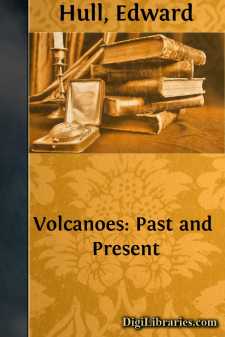Categories
- Antiques & Collectibles 13
- Architecture 36
- Art 48
- Bibles 22
- Biography & Autobiography 816
- Body, Mind & Spirit 145
- Business & Economics 28
- Children's Books 17
- Children's Fiction 14
- Computers 4
- Cooking 94
- Crafts & Hobbies 4
- Drama 346
- Education 58
- Family & Relationships 59
- Fiction 11834
- Foreign Language Study 3
- Games 19
- Gardening 17
- Health & Fitness 34
- History 1378
- House & Home 1
- Humor 147
- Juvenile Fiction 1873
- Juvenile Nonfiction 202
- Language Arts & Disciplines 89
- Law 16
- Literary Collections 686
- Literary Criticism 179
- Mathematics 13
- Medical 41
- Music 40
- Nature 179
- Non-Classifiable 1768
- Performing Arts 7
- Periodicals 1453
- Philosophy 66
- Photography 2
- Poetry 897
- Political Science 203
- Psychology 45
- Reference 154
- Religion 516
- Science 126
- Self-Help 85
- Social Science 82
- Sports & Recreation 34
- Study Aids 3
- Technology & Engineering 59
- Transportation 23
- Travel 463
- True Crime 29
Sort by:
CHAPTER I Any scheme of education must be built upon answers to two basic questions: first, What do we desire those being educated to become? second, How shall we proceed to make them into that which we desire them to be? In our answers to these questions, plans for education fall naturally into two great divisions. One concerns itself with ideals; the other, with methods. No matter how complex plans...
more...
by:
Anonymous
CHAPTER I. DEFINITION.—EVERY PERSON HAS SOME SPECIAL VOCATION. Q. What is a vocation? A. A call from God to some state of life. Q. Which are the principal states of life? A. Matrimony, virginity, the religious state, and the priesthood. Q. Has every person a vocation? A. Yes; God gives a special vocation to each person. Q. How is this doctrine proved? A. St. Paul says: "Every one hath his proper...
more...
by:
Wesley Mills
CHAPTER I. THE CLAIMS AND IMPORTANCE OF VOCAL PHYSIOLOGY. To know consciously and to do with special reference to guiding principles are to be distinguished from carrying out some process without bearing in mind the why or wherefore. Science is exact and related knowledge, facts bound together by principles. Art is execution, doing, and has not necessarily any conscious reference to principles. While...
more...
by:
Edward Hull
CHAPTER I. HISTORIC NOTICES OF VOLCANIC ACTION. There are no manifestations of the forces of Nature more calculated to inspire us with feelings of awe and admiration than volcanic eruptions preceded or accompanied, as they generally are, by earthquake shocks. Few agents have been so destructive in their effects; and to the real dangers which follow such terrestrial convulsions are to be added the...
more...
by:
Ben Jonson
INTRODUCTION The greatest of English dramatists except Shakespeare, the first literary dictator and poet-laureate, a writer of verse, prose, satire, and criticism who most potently of all the men of his time affected the subsequent course of English letters: such was Ben Jonson, and as such his strong personality assumes an interest to us almost unparalleled, at least in his age. Ben Jonson came of the...
more...
by:
Voltaire
ADULTERY Note on a Magistrate Written about 1764 A senior magistrate of a French town had the misfortune to have a wife who was debauched by a priest before her marriage, and who since covered herself with disgrace by public scandals: he was so moderate as to leave her without noise. This man, about forty years old, vigorous and of agreeable appearance, needs a woman; he is too scrupulous to seek to...
more...
by:
Andre Norton
Talk of heat—or better not—on Xecho. This water-logged world combined all the most unattractive features of a steam bath and one could only dream of coolness, greenness—more land than a stingy string of islands. The young man on the promontory above the crash of the waves wore the winged cap of a spaceman with the insignia of a cargo-master and not much else, save a pair of very short shorts. He...
more...
by:
Edward Edwards
INTRODUCTION None of the minor incidents in our naval history has inspired so many writers as the Mutiny of the Bounty. Histories, biographies and romances, from Bligh's narrative in 1790 to Mr. Becke's "Mutineers" in 1898, have been founded upon it; Byron took it for the theme of the least happy of his dramatic poems; and all these, not because the mutiny left any mark upon history,...
more...
by:
Joshua Slocum
CHAPTER I The ship—The crew—A hurricane—Cape Verde Islands—Frio—A pampeiro. To get underweigh: It was on the 28th of February 1886, that the bark Aquidneck, laden with case-oil' sailed from New York for Montevideo, the capital o' Uruguay, the strip of land bounding the River Plate on the east, and called by the natives "Banda Oriental." The Aquidneck was a trim and tidy...
more...
INTRODUCTION. The author left Quebec, Dominion of Canada, July 4, 1874, with a single assistant, in a wooden canoe eighteen feet in length, bound for the Gulf of Mexico. It was his intention to follow the natural and artificial connecting watercourses of the continent in the most direct line southward to the gulf coast of Florida, making portages as seldom as possible, to show how few were the...
more...











